By Nina Huang
NORTHWEST ASIAN WEEKLY
“Do you want to move forward or do you want to go back?”
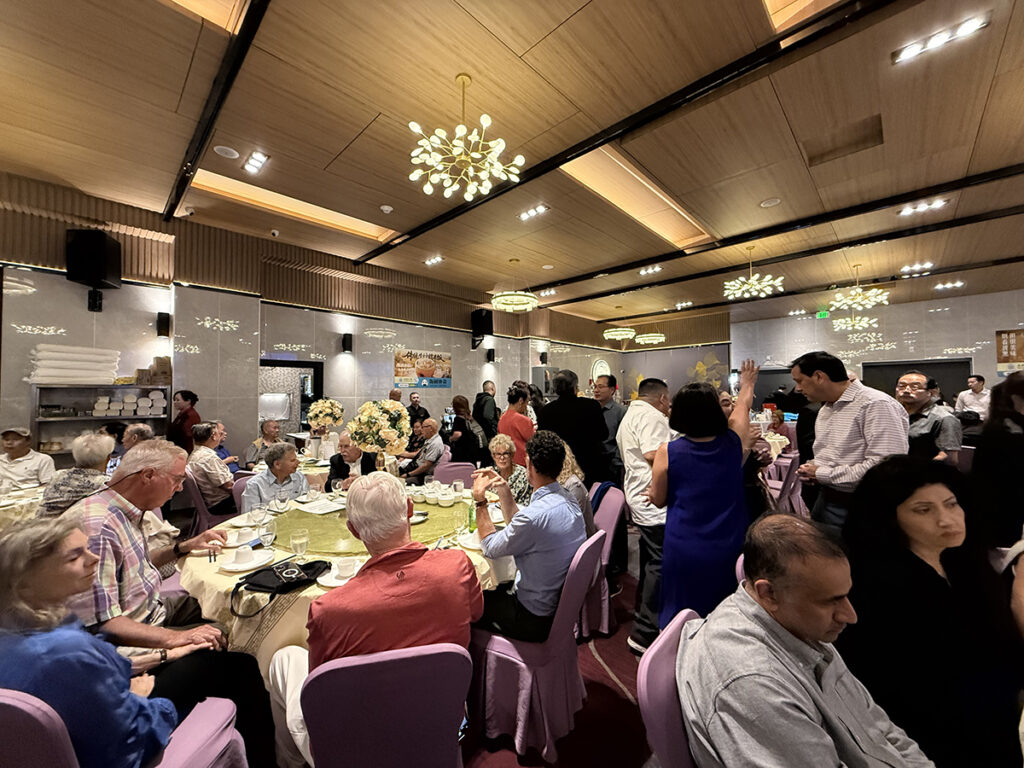
Photo by Nina Huang
That question set the tone for nearly 250 supporters gathered at Seattle Mayor Bruce Harrell’s fundraiser on Sept. 17. The event, at Diamond Bay Restaurant in the Chinatown-International District (CID), raised over $20,000 for Harrell’s campaign, and drew community members, business leaders, and political figures including former Mercer Island Mayor Benson Wong, former Burien Mayor Jimmy Matta, and University of Washington’s Dr. Connie So.
Community support
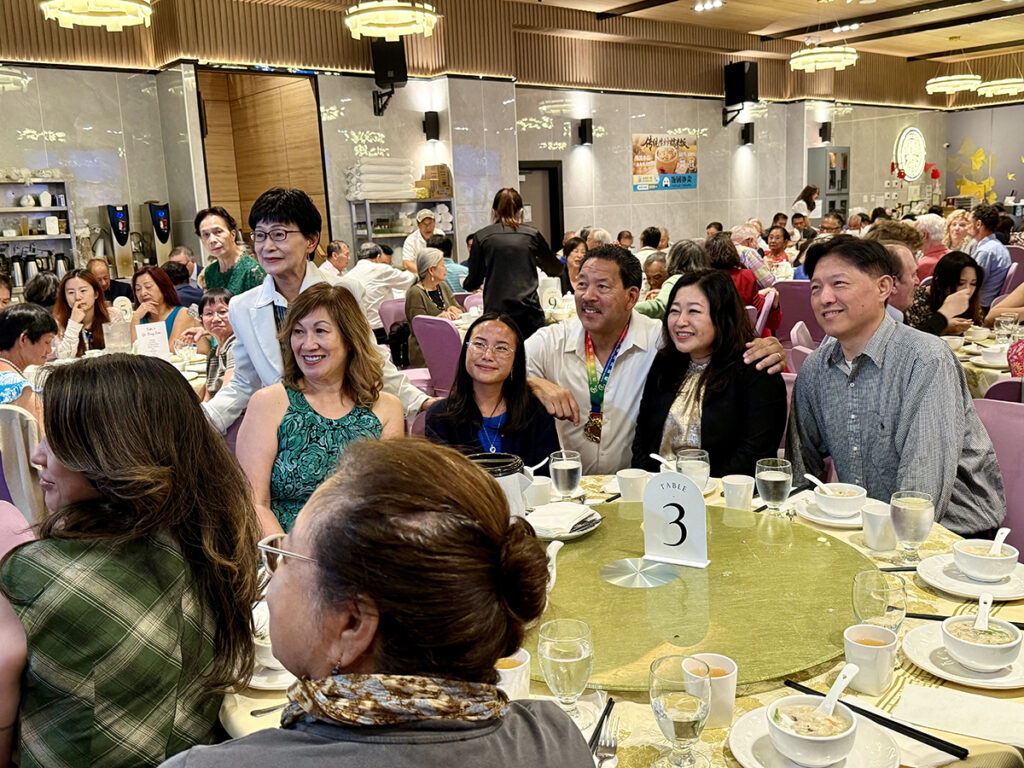
Photo by Nina Huang
The evening, emceed by community leader Assunta Ng, opened with remarks from Uwajimaya CEO Denise Moriguchi, who introduced Harrell and stressed the importance of civic engagement. Their energy carried into a night that highlighted both community pride and campaign urgency.
Harrell, first elected in 2021, is seeking a second term but trails challenger Katie Wilson following the August primary. Wilson received 50.8% of the vote, compared to Harrell’s 41.2%. With debates set for later this month and the next, the fundraiser gave Harrell a chance to rally donors and reinforce his message of pragmatic leadership.
Converge Media producer LeVoy Cooks praised Harrell’s impact. “He has a big heart and an awareness when it comes to different cultures,” Cooks said. “With him being a diverse mayor and this city being built on diversity, his image reflects that spirit of inclusion.”
For Filipino American and Capitol Hill resident Auriza Ugalino, who identifies as nonbinary and is undecided in the general election, the event was an opportunity to hear how Harrell will protect Seattle’s trans community.
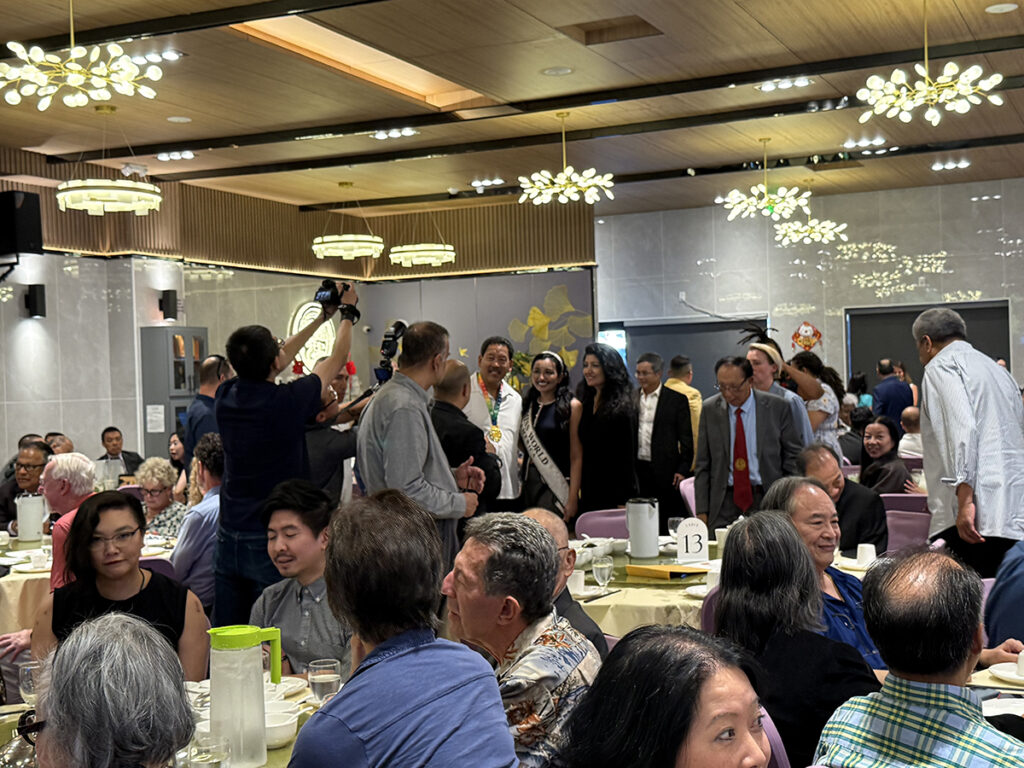
Photo by Nina Huang
“I want to know that at least Seattle and our mayor stand for our human rights and our right to exist in this country,” Ugalino said.
Seward Park resident and former tech executive Seth Eisner, preparing to open a small business, described Harrell as a business-conscious leader.
“The city will benefit from pragmatic leadership,” Eisner said. “Changing horses midstream is hard, and continuity matters. Seattle has a lot of challenges that would be better addressed by a business-conscious leader who can focus on core issues rather than niche concerns.”
The evening also showcased Harrell’s long-standing ties to the Asian American Pacific Islander community, where priorities often include public safety and economic vitality in the CID.
Harrell’s stance on important topics
During a Q&A, Harrell fielded questions about protecting diverse communities, supporting small businesses, affordable housing, and public safety.
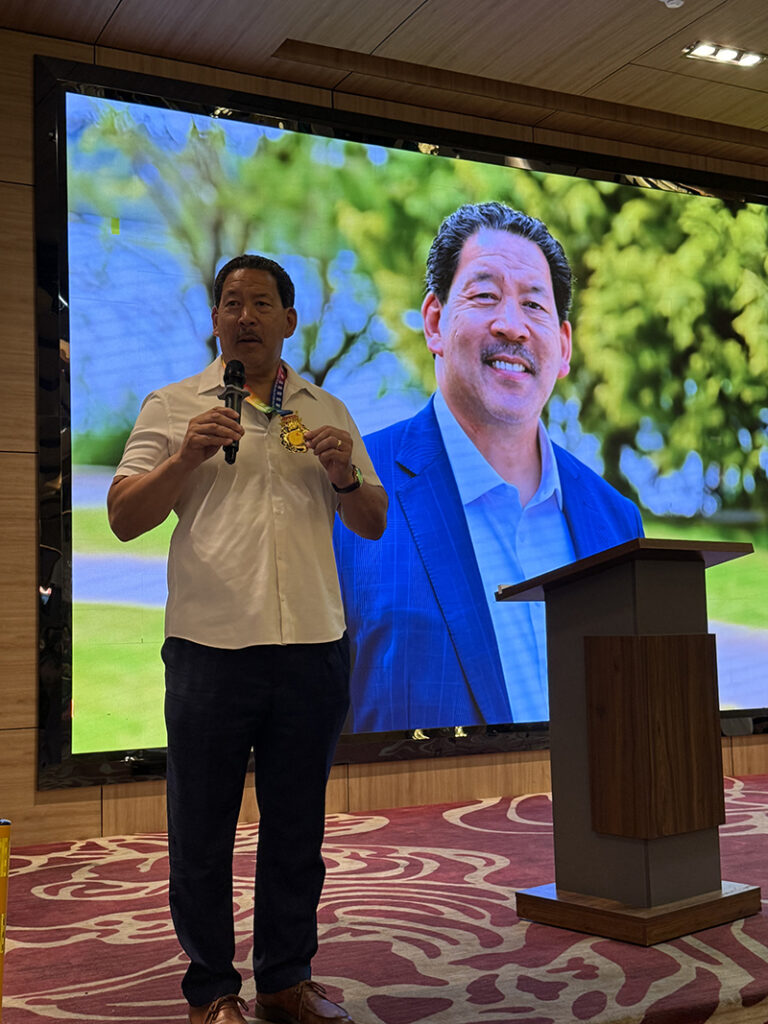
Photo by Nina Huang
On the latter, Harrell emphasized that cleaning streets is only a temporary solution unless paired with treatment options. He pointed to new facilities such as the Stability Through Access and Resources and Opioid Recovery and Care Access centers, designed to provide long-term care, and noted Seattle was the first city in the nation to equip first responders with buprenorphine—alongside Narcan—to relieve withdrawal symptoms.
A day after the fundraiser, Harrell proposed a nearly $40 million investment to expand public safety and behavioral health services. The plan would double the number of Community Assisted Response & Engagement Community Crisis Responders, strengthen the Health-99 post-overdose team, add treatment beds, and bolster 911 dispatch staffing. It would also support diversion programs like Law Enforcement Assisted Diversion and add new fire recruits. The administration credits these efforts, along with new response tools, for helping reduce overdose deaths by roughly 20% compared to last year.
Most rewarding challenge
He also reflected on his most rewarding challenge—strengthening relationships with the Seattle Police Department while addressing community concerns.
When he took office in 2022, the department was down 20% of its officers, and he said he had to balance recruitment with accountability. Drawing from his own experience of growing up distrusting law enforcement, Harrell told officers that if they could not recognize George Floyd’s death as a murder, “perhaps this is not the department for you.”
Harrell said the department is now recruiting candidates who reflect Seattle’s communities, many of whom speak English as a second language. For Harrell, building a police force that embraces accountability and diversity has been difficult but deeply rewarding—and a sharp contrast, he added, to his opponent’s past support for defunding police.
“This race is bigger than me. We have an opportunity to move forward and be the city that we all love, or we can go back,” Harrell told the crowd. He also highlighted the importance of local businesses, saying, “We will only be a great city when we support small businesses like the one we’re in right now.”
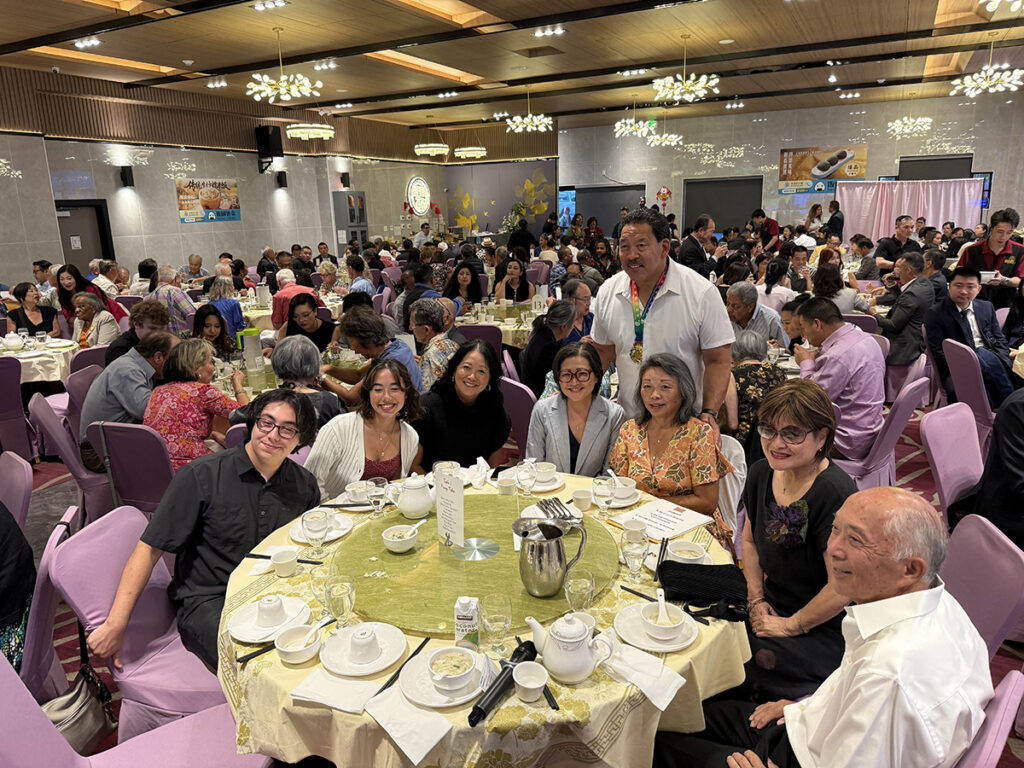
Photo by Nina Huang
Wong, the former Mercer Island mayor, praised Harrell’s temperament and collaborative approach. “It’s going to take someone like Mayor Harrell to bring people together,” he said.
Commitment to progress
Harrell’s determination was clear. Drawing on his football days, he described the kind of leadership he hopes to bring: “You have in me the ultimate warrior. When I played football, I was a linebacker. I don’t run away from contact; I run right into it. That’s what you’re going to need for this next mayor to fight for what we believe in here in Seattle. And you have that in this mayor right here, I commit to that.”
For the mayor, this campaign is about more than re-election—it’s about Seattle’s direction.
He framed the choice as one between progress and regression: “This race is bigger than me. We have an opportunity to move forward and be the city that we all love, or we can go back.”
Nina can be reached at newstips@nwasianweekly.com.
